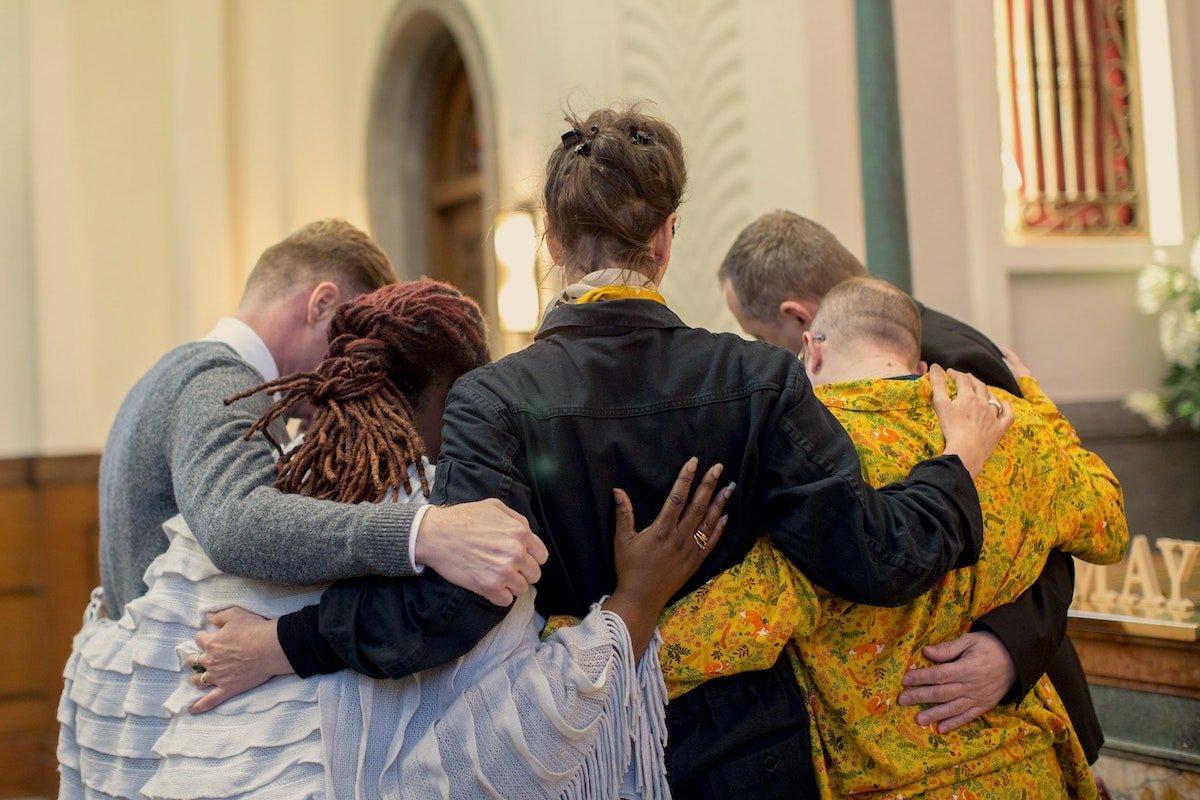Behind the Curtain: Isolation and the Pastor's Wife
The most fruitless phrase in English is, “How are you?” Often, the person asking is not interested in knowing the answer and the person responding is not interested in telling the truth.[1] When we ask this question, do we really want an honest answer or just the normal trite platitudes so we can continue on our way? We may get uncomfortable when the answer is something other than “fine,” or “I’m doing well.”
However, I want to push past the small talk and discuss a common problem in many of our churches. As a pastor’s wife, it can be very lonely and hard to build true friendships with people inside the church.
True Friendships
I recently moved to a new state and needed to re-establish community. For many people, the easiest place to build relationships in a new area is work. Since I am currently working as a housewife, work doesn't afford any obvious friendships for me. Another common and good suggestion is to get involved in a local church. That is a wonderful idea—unless you are also the pastor’s wife. True friendships, then, seem harder to come by.
At our last church, I got the impression that many people only wanted to have a superficial relationship with their pastor and his family. This is the kind of relationship where they want you to be close—but not too close.. As I neared, I met a self-imposed boundary around people's hearts. They want the pastor to lead from the pulpit, but not to get involved in their personal life.
On the other hand, I was grateful to have the senior pastor’s wife at my last church as a true friend. True friendship is a relationship built on trust and accountability. A true friend is someone you can cry or vent with about a particularly hard time. This friend also celebrates with you and understands the importance of confidentiality. In our 4.5 years there, I only made 3 other true friendships inside that church.
An Epidemic of Loneliness
My husband is the only staff member at our current church, and it has reinforced the reality that ministry is often lonely. I am thankful that my closest true friend is my husband. Other than him, my closest friends now live out of state. I am not unique in my experience. In a minister’s wives group on Facebook, I posed a question:
As a pastor's wife, in my church, I have…
No true friendships. (10 votes)
1–2 true friendships. (17 votes)
3–5 true friendships. (7 votes)
6–10 true friendships. (2 votes)
11+ true friendships. (1 vote)
Isolation and loneliness in ministry are not uncommon. One participant in a focus group of pastor’s wives reported, “There's this line that people don't want to cross because you're the pastor's wife. They're like, ‘Well, I can't be your friend or I can't get really close to you,’ and it's really shallow relationships.’”[2]
Because the pastor and his wife are often perceived as more spiritual or have the appearance of having their life together, a church member may feel they cannot be friends. The congregation might not want to make a bad impression or may assume the pastor’s family does not need any new friendships.
Some wives feel overlooked. Another participant in the focus group revealed that “she doesn’t have any friends her age that are in the same season of life (ex: raising kids), so she doesn’t feel like she can ‘really bare my soul or share my deepest hurts with anyone. [I wish there was a] space that was safe to just be [me]. Not a pastor’s wife, not my daughter’s mom, but just me.’”[3] I can relate to these comments. None of the women in our current church are in my season of life, so I would need to look elsewhere to find this common ground.
Pastors' wives can also build their own relational walls. Trust issues that arise from past hurts can also contribute to their loneliness. One pastor's wife reported, “I had really close friends for a while. Probably too close to be a pastor's wife…. I was stabbed in the back, and not just stabbed, but then twisted and turned. I went through a season where I'm like, ‘Okay. I will not have friends.”[4]
The pastor’s wife may have to fight the feeling that she is only a commodity of the church. The first question I received when meeting our current flock was, “Do you play the piano?” What might seem like a simple inquiry to some may make a pastor's wife feel like she doesn't measure up. At their worst, others might want to use her to gain information or to bypass the leadership structure.
A Desire for Community
God designed people to be in community, and isolation can lead to a variety of mental health issues. The risk of depression and suicide among pastors, church planters, and their family members is more common than some realize. Another pastor's wife shared, “I've had pastor's wives friends who had become suicidal. Pastor's wives friends who wanted to quit. Pastor's wives friends who have walked out the door on their marriage and their children because of the hurt they felt from the ministry. To continually put yourself out there [is exhausting].... For a lot of pastor's wives…you constantly are told, ‘Make yourself vulnerable, do this and do that.’ But there has to be a point in time where you get self-care, you are ministered to, you are built up, you are poured into.”[5]
When trying to build relationships, some degree of vulnerability should be present. However, there is a difference between finding commonalities and bearing your soul. Pastors and their wives should find safe places where they can bear their souls and journey towards Christlikeness together. Pastoral ministry doesn’t have to be lonely.
We live in a broken world. People are lonely and crave genuine relationships with others, especially your pastor and his wife. Ministers and their family are people just like you, who struggle with emotional issues. It is really sad when you feel isolated and can’t share what you are going through with anyone—especially at church where you should feel accepted and loved.
It makes sense that people want a pastor who appears to have his life together. However, we must understand that your pastor and his family are humans in need of the gospel and community. Sometimes they become emotionally drained, struggle with infertility or a miscarriage, or experience some other traumatic or emotional events. Pastoral ministry is lonely, but it shouldn't have to be. And even as I write this, I am aware of the irony that I do not feel like I can post this under my name where my church could read it.
The next steps and solutions are not completely for me to answer. God's people must understand the humanity of their ministers and offer gospel hope to them as well. It will require you, as a church member, to pour into your pastor and his wife. A healthy church community cannot be a one-way street where the pastor pours into the flock everyday with an extra helping on Sundays and Wednesdays. Make sure your pastor’s wife and family understand they are valued for more than the things they have to offer during a church service.
You can love your pastor and his wife well. Pay attention to the details. Pay attention to their body language. Does your pastor seem exhausted? Do they smile easily? Does the smile reach their eyes? When you introduce your pastor to someone, try introducing them as your friend rather than “the preacher.”
Spend time outside of church to get to know them as a person. Be the kind of church member with whom he and his wife want to spend time. The leaders at your church are also people, sinful in nature, and should not be held to unrealistic standards. They also need spiritual nourishment and emotional support from their community.
This piece was written by a pastor's wife and has been published under anonymity.
[2] Tara B. Dew, “Survive or Thrive? An Exploration of the Preparedness of Southern Baptist Pastors Wives for Ministry” (Doctorate of Education, Southeastern Baptist Theological Seminary, 2018), 269.
[3] Dew, 270.
[4] Dew, 272.
[5] Dew, 272-273.










Certain pressures accompany the role of pastoral ministry. If pastors don't have a way to relieve that pressure, their world can easily become dark, lonely, and isolated. It's similar to the one in the pool with their eyes closed calling out “Marco!" But they find no one to respond.